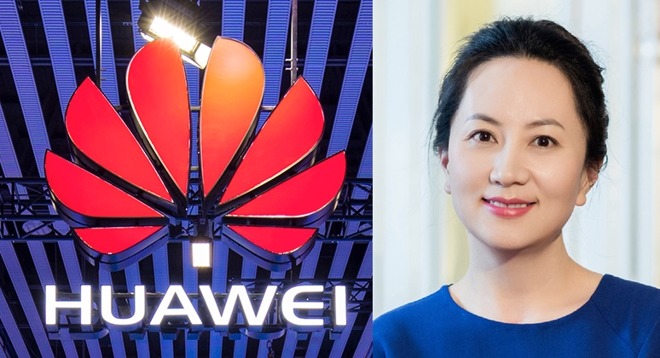Huawei’s CFO arrested in Canada
December 9, 2018 | Expert Insights

Meng Wanzhou, Huawei’s chief financial officer and daughter of the company’s founder was arrested in Canada at the request of US authorities. She faces extradition to the US. The arrest threatens to derail a truce in the trade war between the US and China.
Background
Huawei is a Chinese tech company based in Shenzhen that sells smartphones and telecommunications equipment around the world. Earlier this year, it became the world's second-largest smartphone maker, behind Samsung. It sells more phones than Apple.
Huawei is under investigation for potential violations of US sanctions against Iran. US lawmakers have repeatedly accused the company of being a threat to US national security, arguing that its technology could be used for spying by the Chinese government.
Japan is expected to ban the use of products made by Huawei and ZTE. It is following the moves made by New Zealand and Australia to block Huawei. UK telecom company BT has decided that it would not buy equipment from the company for the core of its next-generation wireless network. The UK also said it would remove existing Huawei technology from the heart of its 4G network within two years.
Analysis
Meng Wanzhou, the chief financial officer of Huawei, a Chinese tech company was detained in Vancouver at the request of US authorities. A spokesperson for Canada's Justice Department said that the United States wants to extradite Meng, and a bail hearing is set. According to a law enforcement official, the US Justice Department sought the arrest as part of an ongoing investigation.
Meng’s arrest is part of an ongoing investigation by U.S. prosecutors into whether Huawei violated banking laws as it sought to evade sanctions against Iran by routing a series of transactions through HSBC Holdings Plc. A judge accepted Meng's request to bar both police and prosecutors from releasing information about the case, so additional information about why she was arrested is limited.
Huawei’s ambitions span artificial intelligence and chipmaking to fifth-generation wireless. That last effort, a massive push into the future of mobile and internet communications, has raised hackles in the U.S. and become a focal point for American attempts to cap China’s ascendancy. Its 5G standards are at the core of a wider IP debate and perhaps why the U.S. is now doing everything it can to cut the heart of the Chinese technology IP revolution. U.S. authorities in 2016 also began voicing concerns that Huawei and others could install backdoors in their equipment that would let them monitor users in the U.S., something Huawei has denied.
"The company has been provided very little information regarding the charges and is not aware of any wrongdoing by Ms. Meng," a Huawei spokesperson said. Meng is the daughter of Huawei’s 74-year-old founder Ren Zhengfei. Ren Zhengfei was a technician for the People’s Liberation Army before founding Huawei in 1987. The Chinese government has invested billions of dollars in Huawei, giving it a competitive advantage in the global marketplace.
Ms. Meng was detained on the same day that US President Donald Trump and China's President Xi Jinping met at the G20 summit in Argentina and later reached a temporary truce in their trade battle. White House National Security Adviser John Bolton, who sat at the table with Trump and Xi, knew in advance of the U.S. request that Canadian authorities arrest Meng. A White House official said that Trump was not aware of the arrest in advance, distancing the president from the provocative move.
Bolton said his country had "enormous concerns for years" about the practice of Chinese firms "to use stolen American intellectual property, to engage in forced technology transfers, and to be used as arms of the Chinese government's objectives in terms of information technology in particular". Bolton, in addressing the arrest stressed that the conduct of Chinese companies and especially technology companies are a central issue in the trade dispute with the U.S. that includes theft of U.S. intellectual property by Chinese actors and forced technology transfers from U.S. companies to Chinese partners in joint ventures.
China has demanded Meng’s release, calling the arrest a human rights violation. China has threatened to inflame tensions with the US. In a statement, Huawei said it had complied with "all applicable laws and regulations where it operates, including applicable export control and sanction laws and regulations of the UN, US and EU." The company also said in a letter to suppliers: "We believe it is unreasonable of the US government to use these sorts of approaches to exert pressure on a business entity. They are against the spirit of free economy and fair competition."
Canadian Prime Minister Justin Trudeau said that his government had no involvement in the arrest.
China's Foreign Ministry has summoned US ambassador, Terry Branstand and Canadian ambassador, John McCallum to protest against the detention of Meng Wanzhou, describing the detention as ‘lawless’ and ‘extremely vicious’. China’s vice minister of foreign affairs, Le Yucheng said China would like the US to revoke the arrest warrant and warned Canada of “serious consequences” if the release does not take place.
Assessment
Our assessment is that the US is targeting one of the companies at the centre of Presidents Xi's long-term campaign to wrest the lead in future technologies and wean China away from reliance on foreign competence. We feel that the US is trying to enforce its law that prohibits the use of certain US-origin technologies to countries. We also believe that the arrest is intended to persuade other nations to curb commercial ventures with Huawei because of security concern.








Comments